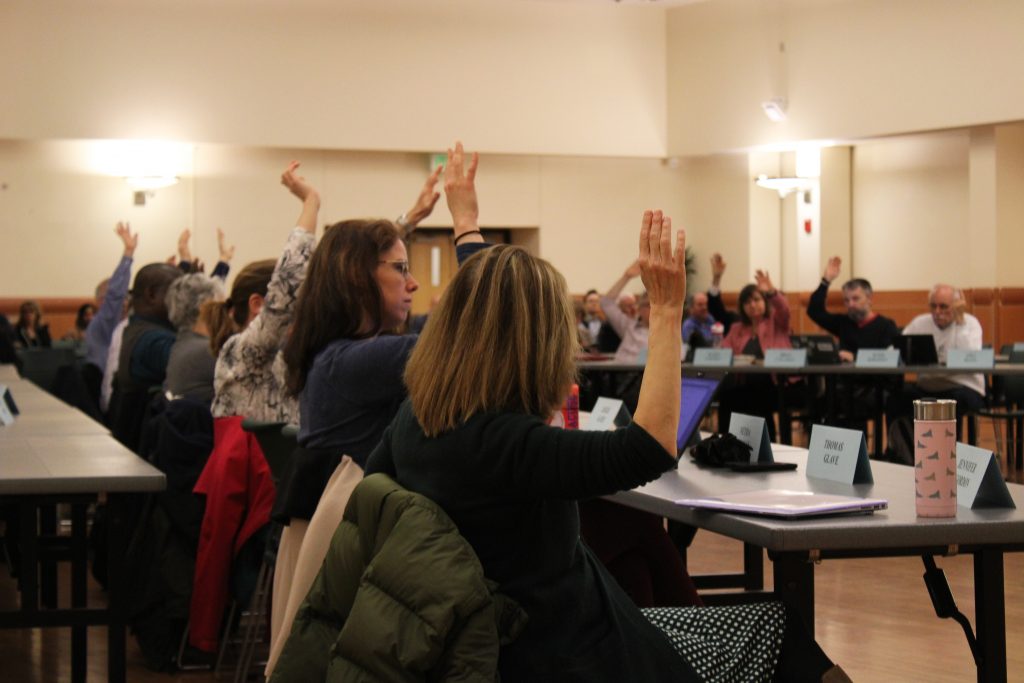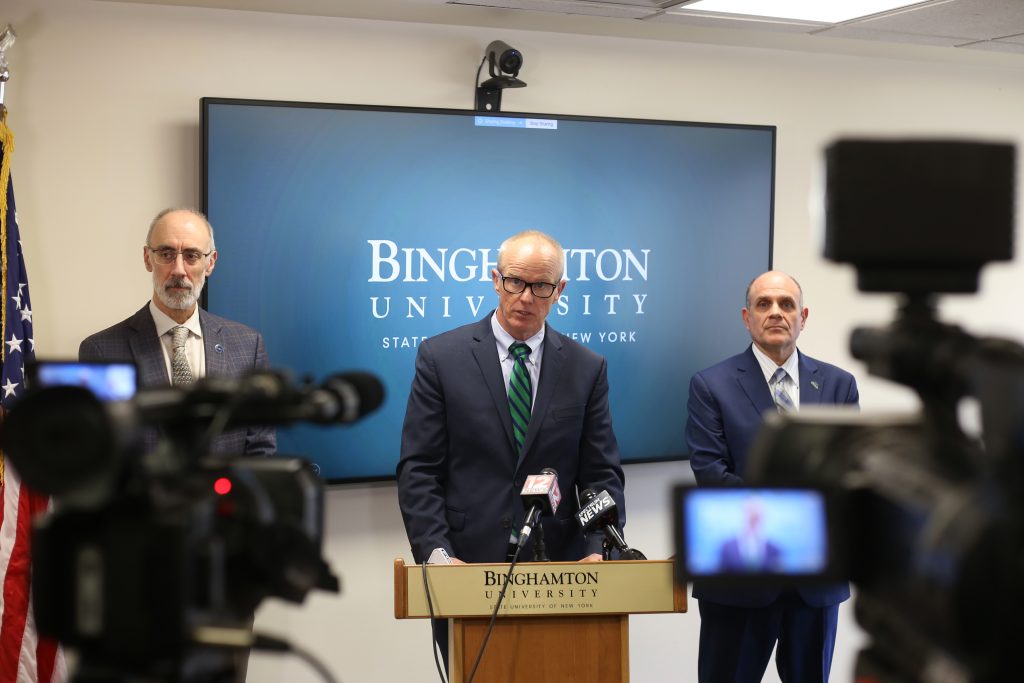
As the number of confirmed cases of the coronavirus (COVID-19) in New York state rose above 200 on Wednesday, Gov. Andrew Cuomo announced that distance learning will be implemented throughout the SUNY and CUNY systems starting March 19. Online classes will continue for the remainder of the spring semester, according to a tweet from Cuomo.
“CUNY and SUNY, starting March 19, will move to a distance model,” Cuomo said in a press conference. “Both systems will be doing that. CUNY will help reduce the density in New York City. SUNY will help reduce the density in downstate New York.”
In a matter of 10 days, New York state jumped from having just one confirmed case of the illness on March 1 to 216 as of Wednesday evening — which is more confirmed cases than any other state aside from Washington. As a result of growing concern among students and administrators alike, a string of other colleges and universities have also chosen to move toward an online format to combat COVID-19, including Harvard University and Cornell University.
Despite fears surrounding the outbreak and how it will affect Binghamton University going forward, BU President Harvey Stenger said he believes the University will prevail through the challenge.
“My job is to make sure that we do the best we can right here and focus on the continuity of the University,” Stenger said. “Our goal is to make our students successful. This is going to be a challenge because moving all of our classes to an online format has never been done before and so there is some risk involved with that, but I believe that we will succeed.”
Cuomo’s decision comes in the wake of BU’s semiannual Faculty Senate meeting, held on March 10. At the meeting, faculty members and administrators discussed a myriad of issues, but primarily focused on the University’s course of action regarding COVID-19. Faculty members voted to pass a motion concerning the University’s contingency plan, which would require classes to move online if a case of COVID-19 was confirmed in the BU community. These plans, however, were superseded by Cuomo’s announcement on Wednesday.
In response to Cuomo’s announcement, Stenger held a press conference where he detailed the University’s new plan. Going forward, all classes will go online by Thursday, March 19, but the campus, including dormitories and dining halls, will remain open.
“The operations of the campus are going to be fully staffed, our staff is still expected to report to work as normal,” Stenger said. “There could be some exceptions for staff with existing health conditions or other reasons why they might not be coming … We’ll take those case by case and develop a strategy for them to go through work.”
Laboratory classes will also be taught remotely, although deans can choose to make certain exceptions. Internships, clinical work and work-study programs will continue, but students will have the option to forego these opportunities in favor of returning home for the semester.
All events, including seminars and conferences, that are scheduled on or after March 19 will be canceled or moved to an online format. Athletic competitions and performances will continue, however, spectators will not be allowed to attend. It is unclear whether the America East conference will cancel games going forward. A final decision on 2020 commencement ceremonies will be announced by April 17.
In a press release, the Student Association (SA) Executive Board wrote that all SA-chartered group events will be suspended on March 19.
James Pitarresi, vice provost for student and faculty development and executive director for the Center for Learning and Teaching, said he believes the University is well prepared for the changes and transition.
“One of the things that’s really worked to our advantage is that we had a plan,” Pitarresi said. “That plan was in place, we were in the early stages of executing that plan and part of the plan was communicating with faculty and various people, the support staff to support the transition online and then we went out and had communication with them.”
Pitarresi added that many departments have been forward-thinking regarding future plans to ensure students have a successful semester.
“We worked with different groups — I’ve been meeting with groups that teach laboratory classes, foreign language classes, the English department, a variety of different departments,” Pitarresi said. “What’s amazed me is how collaborative and creative the faculty have been — really trying to come up with ways to, given the situation, how we can really craft high-quality learning experiences and assessments so that the students really have an outstanding experience.”
Despite the challenges posed by moving classes online, Stenger said he sees the situation as a semester that will bring the campus together.
“This is a different kind of situation,” Stenger said. “There’s bad things that can happen on campus and sometimes you spend time just cleaning up after the bad things — this is different. This is a challenge for us. This is something that I think everybody will work together on. There’s no sides against each other. This is how can we make [BU] successful in something that we didn’t create, but something that we now have to deal with.”



